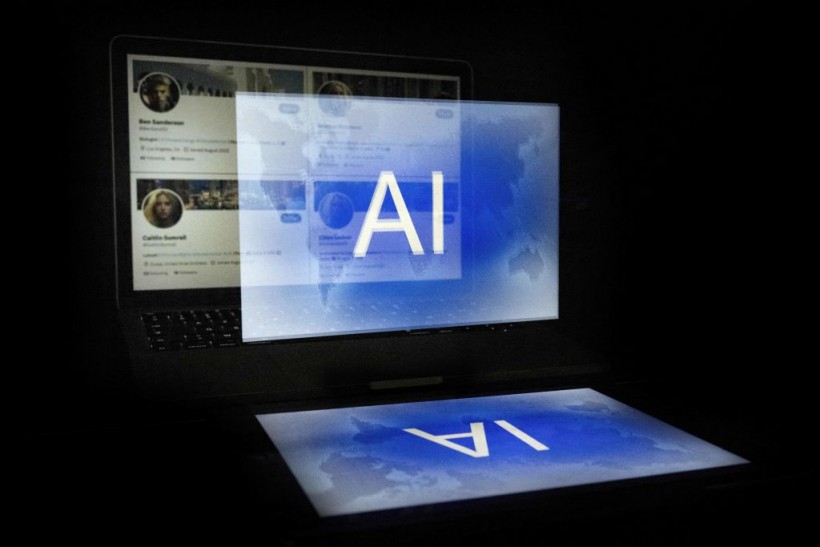Recent Stanford Institute for Human-Centered Artificial Intelligence analysis found a significant decline in the AI industry. According to the research, global investment in AI fell significantly in 2023-the second year in a row.
Venture capital investments for startups and corporate mergers and acquisitions fell in 2023. AI-related mergers and acquisitions fell 31.2%, from $117.16 billion in 2022 to $80.61 billion in 2023. Private investment fell from $103.4 billion to $95.99 billion. AI investment fell 20% to $189.2 billion in 2023, including minority share purchases and public offers, per TechCrunch.
Despite this drop, several AI ventures received large amounts of funding. Microsoft bought key personnel from Inflection AI for $650 million, while Amazon invested billions in Anthropic. In 2023, 1,812 AI companies received funding, a 40.6% increase from the year before.
AI investment is declining for many reasons, according to experts. According to Gartner analyst John-David Lovelock, AI investment is expanding as larger firms like Anthropic and OpenAI secure their positions. Umesh Padval, managing director at Thomvest Ventures, attributed the dip to slower-than-expected growth and AI's technical and business problems.
Other industry analysts cite decreasing enthusiasm for supporting new firms, overreliance on exponential growth, and a more careful approach to AI investment evaluation.
Despite the industrial slump, generative AI is a bright light. In 2023, generative AI startups received $25.2 billion, up significantly from prior years. However, business leaders remain skeptical of generative AI-powered products' productivity advantages and hazards.
Investment fever in the AI field is cooling, but others see it as an essential step toward sustainability. Industry analysts anticipate AI investment to continue, with occasional changes.
Entry Level Jobs at Risk
Amid the changing business landscape driven by AI, Wall Street corporations are considering using the technology to help or replace entry-level workers, increasing concerns about financial sector job security, per an earlier TechTimes report.
Wall Street and investment banks, traditionally adaptable to cultural upheavals, are increasingly interested in generative artificial intelligence as a transformational technology that might augment or replace whole workforces.
This trend particularly affects entry-level investment banking analysts, who spend a lot of time learning about corporate finance, bond sales, M&A transactions, and public offerings. AI systems can complete many jobs quickly and without complaints.
Read Also: Chinese Researchers Utilize Budget Nvidia AI Chip to Enhance Hypersonic Weapon
As Wall Street operations increasingly use AI, insiders at Goldman Sachs say conversations are underway about decreasing analyst staffing. The hiring of junior investment banking analysts may drop by two-thirds, with those who remain likely receiving lower pay thanks to AI's assistance.
Following the loss of thousands of jobs due to the impact of AI on employment, the CEOs of UPS and IBM warn of further disruption from AI. A McKinsey poll indicated that 25% of businesspeople expect AI-related layoffs.

(Photo : OLIVIER MORIN/AFP via Getty Images)
This illustration photograph taken in Helsinki on June 12, 2023, shows an AI (Artificial Intelligence) logo blended with four fake Twitter accounts bearing profile pictures apparently generated by Artificial Intelligence software.
Tech Giants Addressing AI's Impact on Employment
Tech giants like Cisco, Google, Microsoft, and IBM formed the AI-Enabled ICT Workforce Consortium in response to these concerns. The consortium will examine AI's influence on jobs and offer training.
The effort evaluates AI's influence on 56 major ICT vocations and suggests training options. However, industry-led solutions are not trusted. IBM and Intel training has not increased demand for AI-related professions, according to analysts.
The consortium's long-term strategy and efficacy are unknown as it prepares to deliver its results this summer. Stakeholders want tangible measures to curb job losses and boost workforce development as AI technology advances, per a previous report.
Job cutbacks in 2023 affected media, banking, and retail, as well as IT. Business Insider reported employment losses at IBM, Google, Microsoft, Goldman Sachs, and Dow.
Nearly 40% of firm owners foresee layoffs, and 50% expect hiring freezes in 2024, according to ResumeBuilder. CEOs of firms over 10 describe recession worries as a major influence. AI is another major cause of job cuts, with 40% of respondents wanting to replace humans with AI. Dropbox, Google, and IBM have cut AI-related jobs.
Related Article: Former TikTok Employees Expose Social Media Platform's Alleged Ties to China and Data Sharing 









